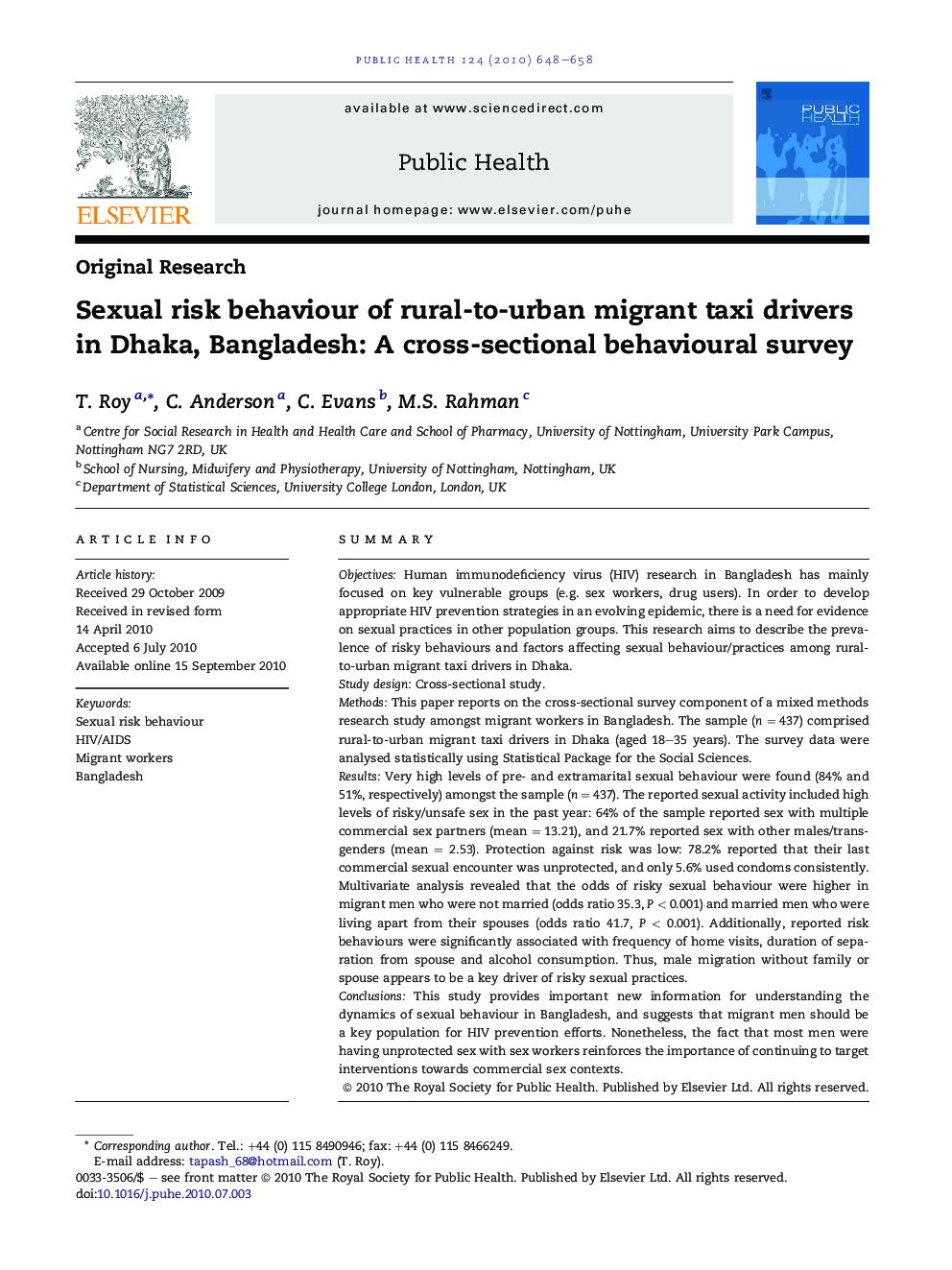| Article ID | Journal | Published Year | Pages | File Type |
|---|---|---|---|---|
| 1088472 | Public Health | 2010 | 11 Pages |
SummaryObjectivesHuman immunodeficiency virus (HIV) research in Bangladesh has mainly focused on key vulnerable groups (e.g. sex workers, drug users). In order to develop appropriate HIV prevention strategies in an evolving epidemic, there is a need for evidence on sexual practices in other population groups. This research aims to describe the prevalence of risky behaviours and factors affecting sexual behaviour/practices among rural-to-urban migrant taxi drivers in Dhaka.Study designCross-sectional study.MethodsThis paper reports on the cross-sectional survey component of a mixed methods research study amongst migrant workers in Bangladesh. The sample (n = 437) comprised rural-to-urban migrant taxi drivers in Dhaka (aged 18–35 years). The survey data were analysed statistically using Statistical Package for the Social Sciences.ResultsVery high levels of pre- and extramarital sexual behaviour were found (84% and 51%, respectively) amongst the sample (n = 437). The reported sexual activity included high levels of risky/unsafe sex in the past year: 64% of the sample reported sex with multiple commercial sex partners (mean = 13.21), and 21.7% reported sex with other males/transgenders (mean = 2.53). Protection against risk was low: 78.2% reported that their last commercial sexual encounter was unprotected, and only 5.6% used condoms consistently. Multivariate analysis revealed that the odds of risky sexual behaviour were higher in migrant men who were not married (odds ratio 35.3, P < 0.001) and married men who were living apart from their spouses (odds ratio 41.7, P < 0.001). Additionally, reported risk behaviours were significantly associated with frequency of home visits, duration of separation from spouse and alcohol consumption. Thus, male migration without family or spouse appears to be a key driver of risky sexual practices.ConclusionsThis study provides important new information for understanding the dynamics of sexual behaviour in Bangladesh, and suggests that migrant men should be a key population for HIV prevention efforts. Nonetheless, the fact that most men were having unprotected sex with sex workers reinforces the importance of continuing to target interventions towards commercial sex contexts.
